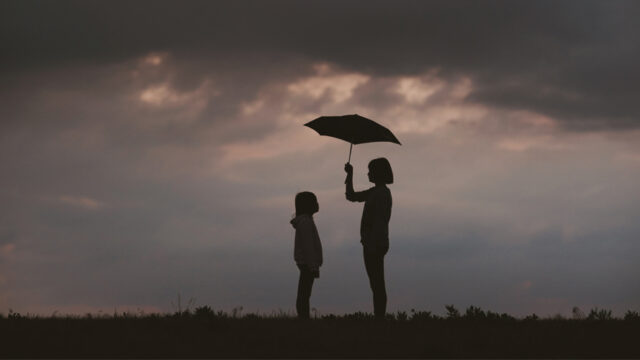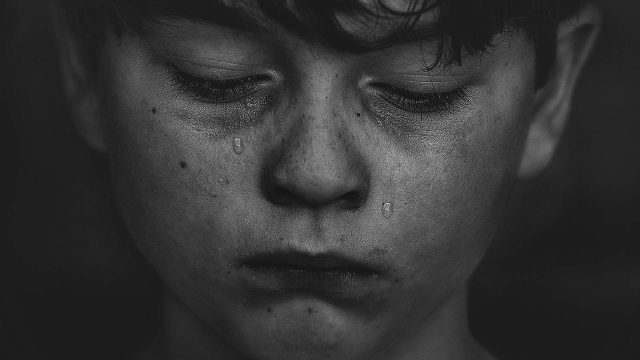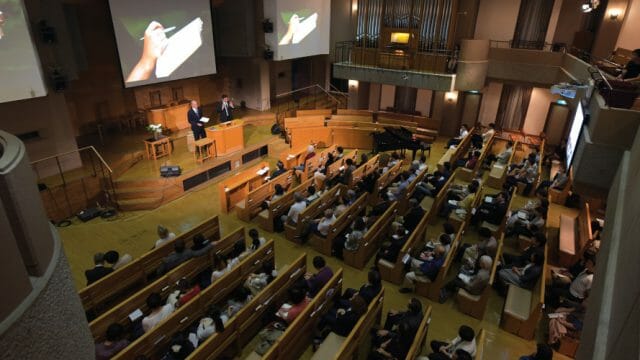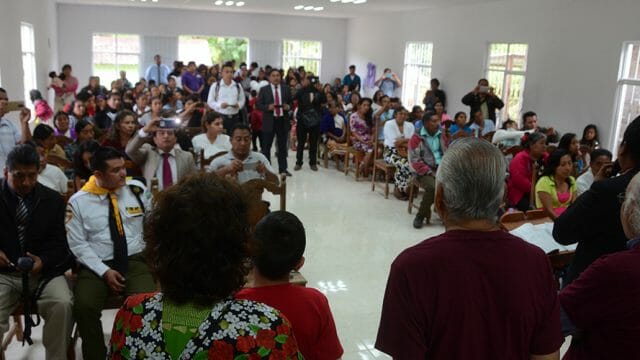Experienced professor and organizer makes a case for greater involvement.
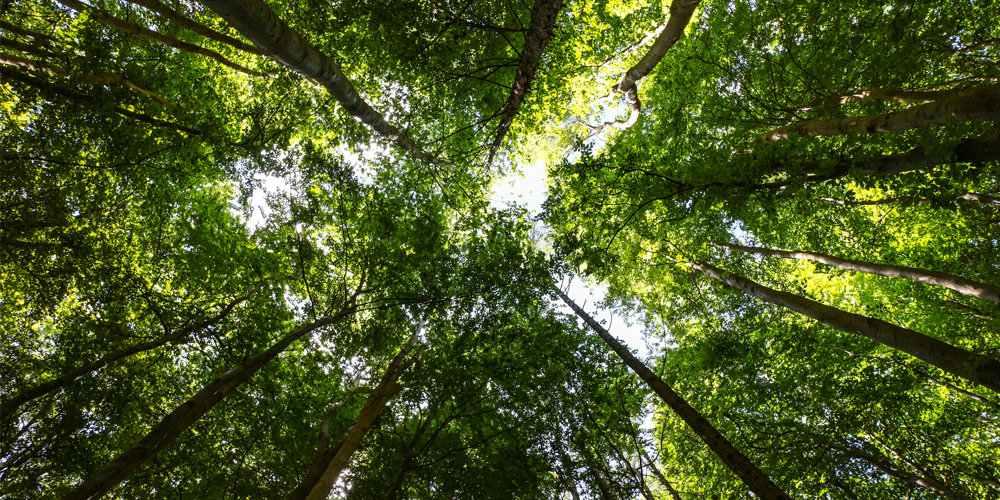
At the recent Congress on Social Justice at Andrews University (AU), the question was posed, why should Seventh-day Adventists advocate for upholding environmental justice for others?
According to Joel Raveloharimisy, associate professor of community and international development at Andrews University (AU) in Berrien Springs, Michigan, United States, an essential part of being Adventist is working toward making people’s lives better not only in the world to come but also on this earth.
An experienced advocate and activist, Raveloharimisy has raised funds to construct more than 300 classrooms and school buildings and numerous churches in his native Madagascar. He also has helped to establish the first ophthalmological clinic and education center in the country. In 2003, he started Actions for Madagascar, a group of dedicated students and young professionals with the goal of creating positive and sustainable changes in Madagascar through empowerment of youth and women, advocacy, and community development.
On October 15, at the Congress on Social Justice held at AU, Raveloharimisy discussed current environmental challenges and what Adventist members can do, as the biblical prophet Micah wrote, “to do justly … love mercy, and … walk humbly with your God.”
The reality of environmental injustice
Raveloharimisy began by explaining that resource wars fixed in extractive economic models generate and perpetuate human rights violations. In the past, colonialism began the process of environmental degradation and introduced industrial slavery. “Many corporations produce cheap goods at the cost of vulnerable people in other countries,” he noted.
Current exploitation of resources follows a neo-colonialist model, often favoring seizure of communal and indigenous land and even detention and murder of the opposition. Global land and water grabs are another issue, he said, including current Arctic competition over fossil fuels and the fight for access to ports and waterways. “There are economic systems that capitalize on poverty,” Raveloharimisy said. “People are left with no insurance or system of support. We might think it’s a third-world problem, but it’s a first-world problem too.”
Dispossession also presents serious challenges, according to Raveloharimisy. In many cases, there are no records of the ownership of the land. “This makes it easier for a government to sell it and difficult for people to protest or present a claim,” he explained. Then, people from rural areas move to the cities, which produces conflict between ethnic groups because of increasing competition.
Deforestation and poor land management also have increased challenges. Often, small landowners are pressured to cut trees to increase their farmland, but they end up degrading their soil. Raveloharimisy shared the story of a man in Nigeria who stored household waste on his land in exchange for some money. Many others did the same, and the land is now ruined; they cannot plant anything, he reported.
Other challenges result from current changes in weather patterns. Raveloharimisy referenced the plight of the Sami in Finland. “As the permafrost is melting, they find it more difficult to find land for their herds,” he explained. “It is something that is destroying a way of life for these people, not only their customs but their economy.”
Why Adventists Should Get Involved
Overall, current patterns point to an unbiblical model of environmental destruction, Raveloharimisy noted. But complaining about the situation won’t solve the most pressing issues, he said. “We have a God-given mandate to be proactive,” Raveloharimisy emphasized. He quoted Adventist Church co-founder Ellen G. White, who called Bible-believing Christians to show interest in people’s temporal welfare, adding, “Our neighbors are the whole human family.”*
Raveloharimisy also called every Adventist Christian to remember that the first responsibility Adam was given was to be a steward of the earth. It was the original model of ecological justice. Human-made failures in stewardship trigger imbalance and conflict. “People who suffer the most from the ravages of environmental destruction are the most vulnerable, the minorities,” he said.
Marcella Myers, AU associate professor of political science, agreed. “Environmental justice has a lot to do with human rights,” she said on a video conference call from Uganda, where she is currently doing research. “And human rights are not respected if you are not capable of making a living out of your land anymore.”
Despite the odds, Myers emphasized, there are ways to help communities so they can survive without degrading their soil. “But we must think about their needs and how to enable them,” she said.
Raveloharimisy agreed. “We have a responsibility to sustainability,” he said.
Opportunities for Action
Among the opportunities for action, Raveloharimisy mentioned organizing the community for social action and fostering citizen participation and community values. The Adventist Church is already implementing several of these initiatives through its departments and ministries, he noted. “Community capacity building is not apart from Adventist beliefs; we belong to one community,” he said.
He also suggested requesting technical assistance from the Adventist Development and Relief Agency (ADRA) and Adventist Community Services (ACS). In addition, church members can support empowerment approaches through Adventist education and favor advocacy activities to change or improve current legislation.
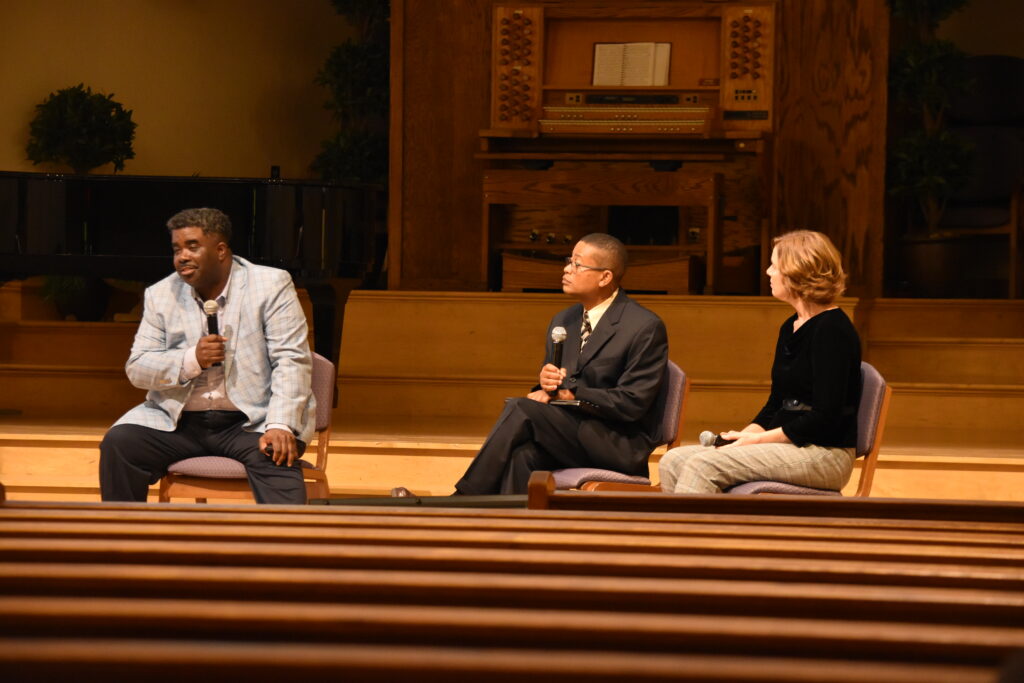
Raveloharimisy has been involved in advocacy initiatives in Madagascar, even when he was told to be careful “not to taint the church.” But for him, environmental justice is a core part of being an Adventist. Sharing about a specific case of advocacy in which a foreign company was extracting graphite without consulting with the ethnic group living on the land, he said, “Of course, we prayed, but we also have tools. We used the media to galvanize the public. Finally, the big corporation sat with me, and we went to Madagascar and talked to the people. Now they have reached an agreement that will protect the land.”
Myers agreed. “I have seen many Seventh-day Adventists working with different organizations that are deeply committed to this faith and to fight for environmental justice,” she shared.
It is not an easy task, but it can be done, Raveloharimisy emphasized. “We must be wise; the Holy Spirit will give us the wisdom. We will enjoy a perfect environment only in heaven. But we can have a better life here too,” he said.
In the Footsteps of Jesus
The presenter and panelists agreed that regarding environmental justice, remaining silent is not a viable option. Environmental issues, they noted, are also affecting church members. “Hundreds and thousands of people, including Adventist members, are victims of those injustices. Should we stay silent?” they asked.
As in the biblical story of Esther, Raveloharimisy noted, if we don’t do our job, help may come from another place. “But it is our duty and privilege to get involved,” he said.
Stacie Hatfield, AU assistant professor of anthropology, said that for her, environmental justice is framed within the overarching story of the cosmic controversy between God and Satan. “In this world, we see Satan working at every moment to exploit people, to destroy our world,” she said. “But Jesus came to be with us. And He lived as He lived, and He died as He died to save us from exploitation. So, it is our duty to take part in that restoration of people and communities.”
__________________________________________
* Ellen G. White, Welfare Ministry (Washington, DC. Review and Herald, 1952), 45.


